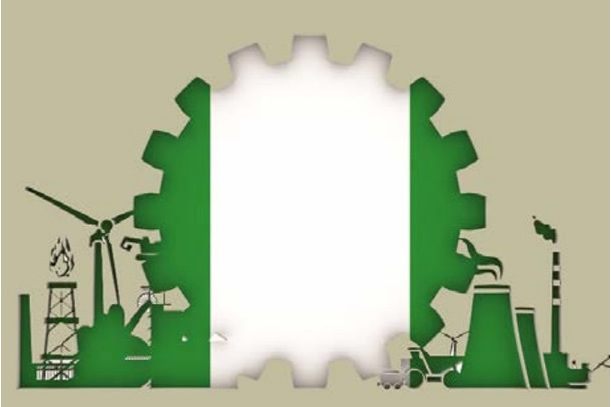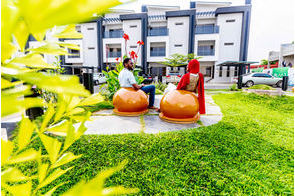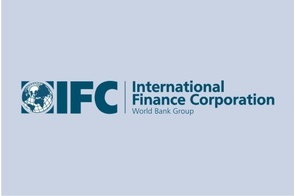At 61, Nigeria should renew commitment to sustainable housing

Summary
The cost structure in the Nigerian (urban) real estate market, based on foreign sourcing of housing materials and inputs, creates the well-identified mismatch of housing demand and supply.
To underscore its recent progress in ease of doing business, Nigeria advanced 15 places on the Jones Lang LaSalle’s 2020 Global Real Estate Transparency Index. From ranking 83rd in 2016, the country moved to 68th position in last year’s edition, out of 99 markets that were surveyed. This ranking is a metaphor on how much more the country needs to progress in various areas, in spite of some strides it has made in some ways.
As the country marks 61 years of independence this month, there is a lot to celebrate amid despair caused by security challenges, economic downturn and concern about our nationhood. The real estate sector is a fitting example of the country’s immense potentials, waiting to be harnessed.
The challenges in Nigerian housing and sustainable development are considerable. Acutely limited access to mortgage stands between the citizens and the realisation of their dream of owning their homes. In Nigeria’s major cities, on the average, workers spend about 60 per cent of their disposable income on housing, which is at least two times the recommendation of 20-30 per cent by the United Nations. The country also faces serious housing supply deficits of about 17 million units. The supply conundrum and the lack of access to mortgage are accelerating the “slumfication” of Nigerian cities, where residents crowd in squalid conditions.
But Nigerians have evolved from being settlers trading across the Middle East and Africa in the 1100 BC. Nigeria is now not only the most populous African country, but it is also the continent’s largest economy. The hope of economic transformation of Africa is borne by Nigeria.
The journey to sustainable housing market in the modern Nigerian territory started well before 1960. The pre-colonial Hausa architecture of mud, stones and grasses helped to shield the nationals of the Northern ethnic group from the scorching winds from the Sahara Desert. Igbo architecture, in the same period, were cave-inspired tight encasements of pitched roofing, which gave priority importance to warmth and wind aversion. The Yorubas prioritised termite resistance, which they found in bamboo rafters for building.
Local sourcing of building materials was predominant in this era. Whereas that may be financially sustainable, the environmental sustainability of the heavy use of natural asset in the housing development was not assured without innovation. The situation was compounded by lack of housing plan, thus suggesting the country was on a trajectory of unsustainable housing in the scenario of the population explosion which Nigeria has experienced.
However, modern real estate development in Nigeria has its own sustainability challenges. The demand side issue is largely access to affordable, long-term consumer housing finance, i.e., mortgage. The institutional framework for effective housing demand is in place with over 30 licensed primary mortgage institutions, Federal Mortgage Bank of Nigeria (FMBN), Nigeria Mortgage Refinance Company (NMRC), and bank consumer lending for home acquisition. The housing finance market is also structured into wholesale and retail segments, ensuring everyone is served. However, supply has continued to lag demand for mortgage.
On the supply side, the good news is that sustainability has become relatively more accepted as the benchmark in real estate development. Bilaad Realty has been a strong voice in this advocacy in the last five years. However, there are issues that remain very pertinent. These include house price inflation, which is largely imported inflation. Contrary to the pre-colonial era, modern housing in Nigeria has relied extensively on foreign sourcing. It is contributing to demand pressure on foreign exchange, which during the last few years of FX scarcity, has driven upward adjustment of the exchange rate.
The cost structure, based on foreign sourcing of housing materials and inputs, also creates the identified mismatch of housing demand and supply in urban areas. Housing is priced above the affordability of a majority of the citizens in the cities. Most consumers are unable to save for either outright purchase of their homes – in the absence of a mortgage – or provide the down payment for financing.
Environmental sustainability challenges in Nigerian real estate development, particularly in the cities, have involved poor utilisation of natural lighting, extensive use of energy-guzzling light bulbs, and lack of greening. Some of these issues, in particular the use of energy-saving light bulbs, are being addressed by the market, and solar PV is gaining increasing use.
The major hurdle to overcome is local innovation, which cuts across policymaking and market. In their research paper, “Overcoming the obstacles to sustainable housing and urban development in Nigeria: The role of research and innovation”, Obianyo et al. (2001), identified formulation and implementation of good policies, development of new building materials, and improvement in the efficiency of local building materials as the pathway to actualising a sustainable Nigerian housing sector.
The innovations from research can benefit policymaking as well as market offerings. A fitting new commitment of government and market participants as the country marks another year of political autonomy is to innovation. However, while the role of government is unvarnished, it is important that the private sector and the research institutions begin to collaborate to mainstream locally-developed innovative solutions into the market, including in real estate. The country needs new functional designs for housing and urban infrastructure. Applying research solutions to improving the strength, durability and efficiency of local housing materials will enable them to compete favourably against foreign ones – both in the local market as well as in export markets.
Demand for housing will continue to increase in Nigeria. It grew by double digits in 2019, as indicated by 72 per cent increase on enquiries about listed properties, according to Nigeria Property Centre. Bilaad expects a surge in growth in the housing sector post-Covid-19, driven by pent-up demand during the lingering pandemic.
To realise this outlook, the foundation for the success of the economy at large, and the real estate sector in particular, should be strengthened. Gordon Hinckley puts it succinctly: “You can’t build a great building on a weak foundation”. The occasion of the 61st anniversary of the country’s independence is an auspicious time to strengthen the policy, institutional and market frameworks for a sustainable Nigerian housing market.
Happy Nigeria Independence Anniversary!
Bilaad Realty Limited is an Abuja-based company focused on delivering sustainable real estate solutions.
Related
-
Community living
The question that homebuyers and investors should be asking is whether communal living is a trend that is both commercially ...
-
Sustainability recommendations for 2022
It is important that we charge forward boldly in the new year and remain resilient to challenges, as we pursue a ...
-
IFC supports green bond to finance green buildings in South Africa
The real estate sector is estimated to generate about 40 percent of the world’s CO2 emissions.








